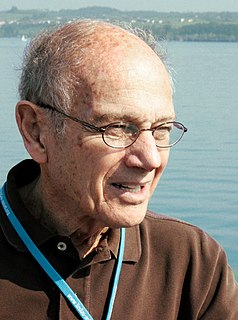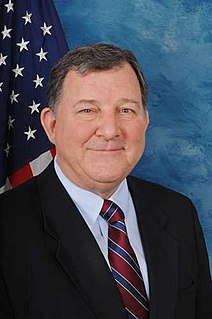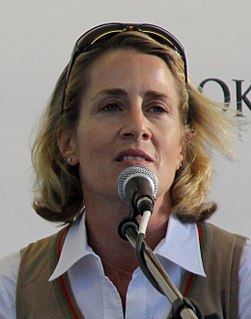A Quote by Laura Poitras
I was in correspondence with an anonymous source for about five months and in the process of developing a dialogue you build ideas, of course, about who that person might be. My idea was that he was in his late forties, early fifties. I figured he must be Internet generation because he was super tech-savvy, but I thought that, given the level of access and information he was able to discuss, he had to be older.
Related Quotes
There's a bigger question again about how to do prevention. It's not simply about putting out the early warning. The early warning was put out on Abyei; everybody knew that this was coming. This was intentional, and still it happened. So this idea that we fail to stop these things because there's not awareness about them, or that we need better early warning information, I'm increasingly skeptical of. I think it's about how you move that information into the policy process.
When I used to go to the Manhattan Chess Club back in the fifties, I met a lot of old-timers there who knew Capablanca, because he used to come around to the Manhattan club in the forties - before he died in the early forties. They spoke about Capablanca with awe. I have never seen people speak about any chess player like that, before or since.
It would be in pretty poor form for me to not be a big supporter of tech and computers because that is how I do my work and how I got involved. The advancement and the affordability of tech gear has made a level playing field where you can now have access to ideas reasonably and then it just comes down to extracting those ideas, which is great.
Be careful who you choose as your hero or who you choose to deify, be it Clay Aiken or Barack Obama. You put all you're hope and all your dreams and all your ideas about stuff into one human being. They're a human being they're going to let you down. You can't make someone your hero because of something you read on the internet. The internet is not a source of information it is a source of disinformation.
Getting faculties to come to a consensus about something that they've never really thought about or had to worry about in their careers before can be a rather slow process and a long process, it certainly was the case at Harvard, and it's the case with most of the general education curricula that I know of, it takes four or five years just to get everybody on board with one idea.
Mao Zedong Thought was not created by Comrade Mao alone - other revolutionaries of the older generation played a part in forming and developing it - but primarily it embodies Comrade Mao's thinking. Nevertheless, victory made him less prudent, so that in his later years some unsound features and unsound ideas, chiefly "Left" ones, began to emerge. In quite a number of instances he went counter to his own ideas, counter to the fine and correct propositions he had previously put forward, and counter to the style of work he himself had advocated.
I was adopted. I was born in Edinburgh, and adopted when I was about two weeks old. And it's a good thing, I think, really, that back then, in '75 when I was born, you were really given a lot more information than you're given now when you're adopted. And you know, you can access that information when you're older.
Mike Flynn is a fine person, and I asked for his resignation. He respectfully gave it. He is a man who there was a certain amount of information given to Vice President Mike Pence. And I was not happy with the way that information was given. He didn't have to do that, because what he did wasn't wrong - what he did in terms of the information he saw. What was wrong was the way that other people were given that information, because that was classified information that was given illegally. That's the real problem.
Back in my days as a children's book editor, my superiors caught on to the fact that teenagers were using the Internet to gossip about each other, and thought it might be nifty to develop a series of books about an anonymous high-school blogger who gossips about her classmates. The concept was passed on to me.





































